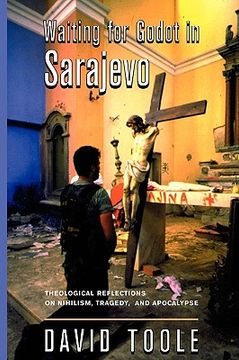Reseña del libro "waiting for godot in sarajevo (en Inglés)"
In the summer of 1914, Archduke Franz Ferdinand was assassinated in Sarajevo, an event which led to the horror of World War I and which many historians suggest marked the beginning of the twentieth century. In 1992, Sarajevo again lurched into prominence as the focal point of one of the century's bloodiest civil wars. Yet Sarajevo at one point epitomized the dreams of the Enlightenment, a city where Christians, Jews, and Muslims peacefully coexisted. In the midst of Sarajevo's recent decline into chaos and destruction, Susan Sontag decided to produce Act I of Waiting for Godot, which, despite ever-looming danger, played to packed houses. Why? Why did this city of hope lie crushed at the end of the twentieth century? Why did Sontag stage an artistic production in the middle of such overwhelming tragedy? Why Waiting for Godot? And, most important, why the appreciative, silent tears of audience members who risked their lives to attend a play in the middle of a war?These are the questions that guide David Toole's theological reflections in Waiting for Godot in Sarajevo, where he seeks to come to terms with what it means to live a life of dignity in a world of undeniable suffering. Toole skillfully weaves together Friedrich Nietzsche's views on nihilism with Michel Foucault's analysis of power to produce a metaphysics of tragedy, or a "politics of dying." Such politics are then used to shed new theological light on the Christian apocalypse and what it means to be alive at the end of the twentieth century. In making his argument, Toole draws innovative connections between such diverse figures as John Milbank, Alasdair MacIntyre, Euripides, John Howard Yoder, and Norman Maclean (author of A River Runs Through It and Young Men and Fire), all the while using Beckett's play as a compass for his direction. The end result is a fascinating, eminently readable, unexpectedly adventurous theological inquiry into the meaning of life.

